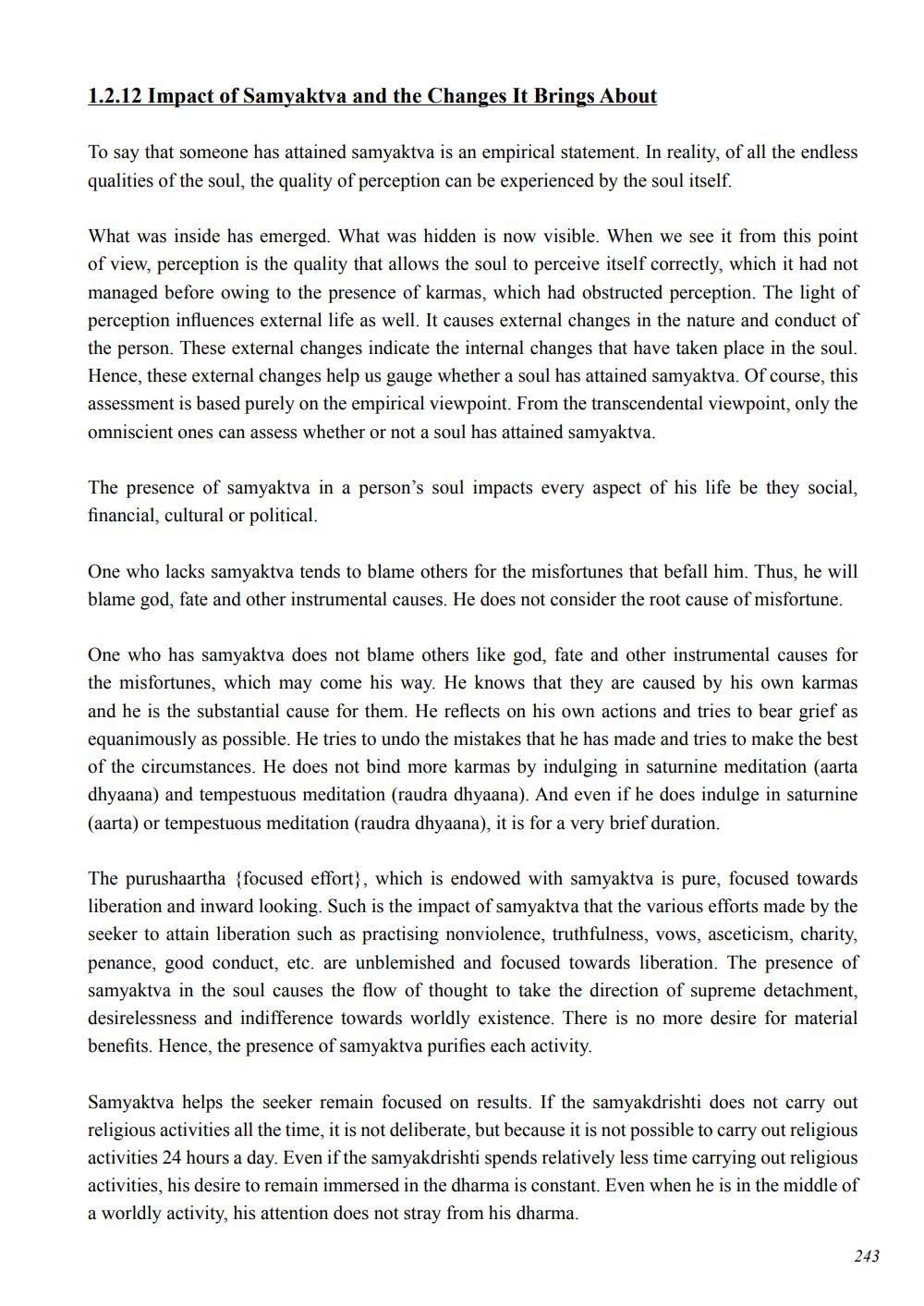________________
1.2.12 Impact of Samyaktva and the Changes It Brings About
To say that someone has attained samyaktva is an empirical statement. In reality, of all the endless qualities of the soul, the quality of perception can be experienced by the soul itself.
What was inside has emerged. What was hidden is now visible. When we see it from this point of view, perception is the quality that allows the soul to perceive itself correctly, which it had not managed before owing to the presence of karmas, which had obstructed perception. The light of perception influences external life as well. It causes external changes in the nature and conduct of the person. These external changes indicate the internal changes that have taken place in the soul. Hence, these external changes help us gauge whether a soul has attained samyaktva. Of course, this assessment is based purely on the empirical viewpoint. From the transcendental viewpoint, only the omniscient ones can assess whether or not a soul has attained samyaktva.
The presence of samyaktva in a person's soul impacts every aspect of his life be they social, financial, cultural or political.
One who lacks samyaktva tends to blame others for the misfortunes that befall him. Thus, he will blame god, fate and other instrumental causes. He does not consider the root cause of misfortune.
One who has samyaktva does not blame others like god, fate and other instrumental causes for the misfortunes, which may come his way. He knows that they are caused by his own karmas and he is the substantial cause for them. He reflects on his own actions and tries to bear grief as equanimously as possible. He tries to undo the mistakes that he has made and tries to make the best of the circumstances. He does not bind more karmas by indulging in saturnine meditation (aarta dhyaana) and tempestuous meditation (raudra dhyaana). And even if he does indulge in saturnine (aarta) or tempestuous meditation (raudra dhyaana), it is for a very brief duration
The purushaartha {focused effort), which is endowed with samyaktva is pure, focused towards liberation and inward looking. Such is the impact of samyaktva that the various efforts made by the seeker to attain liberation such as practising nonviolence, truthfulness, vows, asceticism, charity, penance, good conduct, etc. are unblemished and focused towards liberation. The presence of samyaktva in the soul causes the flow of thought to take the direction of supreme detachment, desirelessness and indifference towards worldly existence. There is no more desire for material benefits. Hence, the presence of samyaktva purifies each activity.
Samyaktva helps the seeker remain focused on results. If the samyakdrishti does not carry out religious activities all the time, it is not deliberate, but because it is not possible to carry out religious activities 24 hours a day. Even if the samyakdrishti spends relatively less time carrying out religious activities, his desire to remain immersed in the dharma is constant. Even when he is in the middle of a worldly activity, his attention does not stray from his dharma.
243




